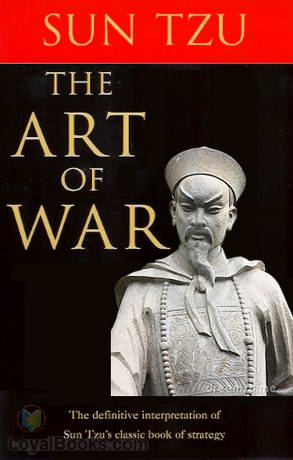 SUN TZU gives a very clear and succinct reason for his military treatise in the first three sentences when he says,
SUN TZU gives a very clear and succinct reason for his military treatise in the first three sentences when he says,
“The art of war is of vital importance to the state. It is a matter of life and death, a road to either safety or ruin. Hence it is the subject of inquiry which can on no account be neglected.”
Here is my interpretation for traders:
“The art of trading is of vital importance to the success of the trader. It is a matter of financial life and death, a road to either consistent profits or significant loss of income. Hence it requires much thoughtful study that cannot be neglected.”
SUN TZU and THE ART OF WAR THE TRADER and THE ART OF TRADING
| Important to the State | Important to the trader |
| A matter of life and death | A matter of financial life or death |
| Road to safety/ruin | A road to consistent profits/significant losses |
| Subject of inquiry not to be neglected | Subject of thoughtful study not to be neglected |
As we continue to explore SUN TZU’s ART OF WAR, keep the above table in mind for everything that follows in his treatise will be shaped by SUN TZU’s foundational premise, which is this: since war is a given fact whoever engages in it best be prepared because the warrior’s very survival is at stake.
Trading is war. If you have been trading long enough I do not have to convince you that it is so. Thoughtful study of the market and how we relate to it is the key to our success and our very survival.





 In Jack Schwager’s New Market Wizards, William Eckhardt said that one mistake traders make is putting too much importance on any single trade. His suggestion was to remember that any one trade is just a small part of the bigger picture and needs to be treated dispassionately. When the individual trade becomes too important, we tend to do things to make the trade work, for example we take profits too quickly or we let losses go in hopes of a return to profitability.
In Jack Schwager’s New Market Wizards, William Eckhardt said that one mistake traders make is putting too much importance on any single trade. His suggestion was to remember that any one trade is just a small part of the bigger picture and needs to be treated dispassionately. When the individual trade becomes too important, we tend to do things to make the trade work, for example we take profits too quickly or we let losses go in hopes of a return to profitability. My fears:
My fears: